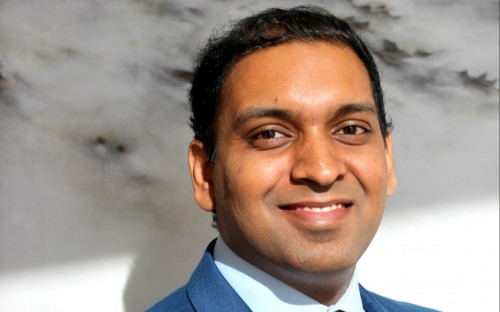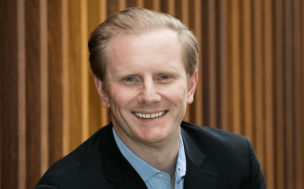For Temple University’s Fox School of Business, teaching MBA candidates about responsible leadership means placing them on the boards of non-profit organizations.
Through this placement initiative, the Fox Board Fellows program pushes students to build their skills, and learn about social responsibility, while solving concrete problems. As a result, local organizations also benefit from students' strategic insights and business acumen.
Sandeep Gupta has over ten years of experience in the Indian and Japanese automobile industries, progressing from engineering to managerial positions. Pursuing a full-time MBA can be a difficult decision for international students, requiring them to take a break from their jobs and leave their home countries. Despite these factors, Sandeep was convinced an MBA from Fox would further advance his already impressive career.
Sandeep was introduced to Profugo, an international development NGO, through the Fox Board Fellows program, and is currently serving as an advisory board member for a year alongside his MBA.
BusinessBecause caught up with Sandeep to find out more.
Tell us about Profugo and your role in the organization.
Profugo is a non-profit organization involved in the development of rural communities in the Wayanad District of Kerala, India. It aims to provide an environment where brighter futures are possible, and all communities have equal access to a better quality of life.
The organization empowers people by providing resources and teaching relevant skills to develop sustainable businesses. My responsibility is firstly to understand completely how non-profit organizations function, and then identify bottlenecks that slow down various projects, acting as a strategic planner to ensure smoother execution in future.
Tell us about your career journey so far.
I have an innate love for innovation, creativity, and machines! It's what drove me throughout my undergraduate degree in mechanical engineering.
Back in college, I secured a campus placement at Maruti Suzuki—the Indian subsidiary of Suzuki Motor Corporation. I ended up spending nine years there, designing and developing auto parts and accessories, costing products, leading teams, and managing budgets.
International work experience at Suzuki in Japan helped me learn more about industry best practices while working in a multicultural and multi-disciplinary environment. It gave me important insights into Japanese culture, the language, and work environment.
Why did you decide to pursue an MBA?
My professional experiences provided enough practical exposure to understand the complete lifecycle of a product from concept to reality. To progress into impactful and leadership roles in the future, I wanted to upgrade my skills set and broaden my horizons to understanding various industries, businesses, and methods of managing them. I hope to gain this from the MBA.
Why Fox School of Business?
The curriculum offers a 360-degree understanding of business fundamentals, and equips me with stronger entrepreneurial and leadership skills.
The Enterprise Management Consulting (EMC) program and two Global Immersion programs at Fox will introduce me to real-life business scenarios in global organizations. Being able to visit international companies in their home countries with my cohort will be a truly enriching and valuable experience.
Additionally, the opportunity to work with individuals from different professional backgrounds, nationalities, cultures, and abilities helps me develop a stronger network, global connections, and offers an opportunity to develop my personal interests.
What stands out so far from your MBA experience?
Studying at Fox School of Business has been a truly international learning experience for me. I found two core subjects particularly interesting. The first is competitive strategy organized by Charlotte Ren, the other is financial analysis and strategy by Ronald Anderson, the newly appointed Interim Dean at the Fox School of Business.
Both professors are experts in their respective fields. They taught the courses using practical methods, by picking latest news on mergers and acquisitions and by using market data. The most exciting part of these classes was collectively brainstorming, deciphering, and understanding the rationale of global business practices.
Also, from day one, college faculties have greatly helped in teaching students the art of networking. We have had the opportunity to meet various high-level company executives at panel discussions, MBA conferences, networking breakfasts, and mock interview sessions.






